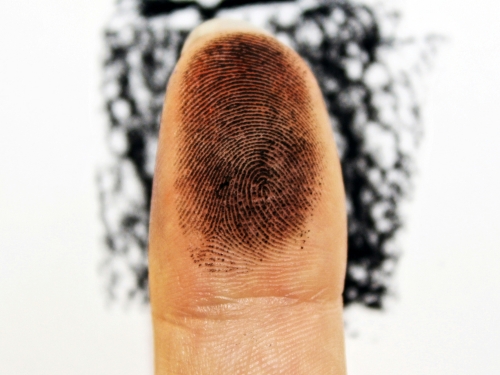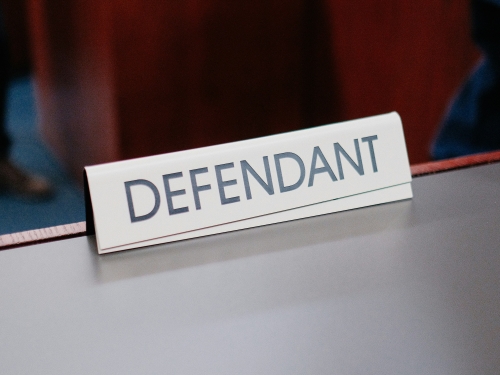Bail Bonding Process: Essential Steps, Eligibility & Other FAQs
After an arrest takes place, the judicial system begins a structured series of steps. The following guide outlines the major phases involved in obtaining a bail bond.
Stage One: Arrest and Booking
Following an arrest, individuals are processed through a series of standard procedures. This includes:

- Documenting personal and identifying details.
- Capturing photographs and fingerprint samples.
- Running a background check for prior offenses or open warrants.
- Taking custody of personal items for security.
- Holding the individual in a jail cell.
- Setting a bail amount immediately or scheduling a hearing for it.
For low-level charges, the individual may be released on their own recognizance – a written promise to return for court proceedings. This decision often hinges on factors such as:
- How serious the alleged offense is.
- Whether the person has a criminal background.
- Public safety concerns.
- Strong local ties, which reduce flight risk.
Stage Two: Bail Ruling
The bail amount serves as a financial pledge to ensure the defendant appears in court. If the defendant misses court, the bail is forfeited and a warrant is issued for their arrest.
When deciding bail, the court evaluates several considerations, such as:

- Nature and Severity of the Crime — The severity of the alleged offense plays a significant role in determining the type of bail. Serious or violent crimes, such as murder or armed robbery, generally result in higher bail amounts or denial of bail, whereas minor offenses, like traffic violations, may result in a citation release or a PR bond.
- Criminal History — Defendants with an extensive criminal history, particularly those with past convictions or a history of skipping court appearances, are more likely to face higher bail amounts or have more stringent bail conditions imposed. Conversely, first-time offenders may receive more lenient bail terms.
- Flight Risk — A key factor considered in bail decisions is whether the defendant is a flight risk. Factors such as the defendant’s ties to the community, employment status, and family connections are considered. Individuals with strong ties are more likely to receive a PR bond, whereas those perceived as likely to flee may face higher bail amounts or be denied bail.
- Risk to Public Safety — If the defendant poses a significant risk to public safety, especially in cases involving domestic violence, sexual assault, or other violent crimes, bail may be set at a high amount or denied altogether.
- Ability to Pay — Judges may also consider the defendant’s financial resources when setting bail. For indigent defendants, the court may set a lower bail amount or offer alternatives like PR bonds to avoid keeping them in jail solely because they cannot afford bail.
- Mental and Physical Health — In some cases, a defendant’s mental or physical health may influence the type of bail granted. For example, defendants suffering from serious illnesses or mental health issues may be considered for release under supervision rather than a financial bond.
Judges may also enforce specific bail conditions – like restricted travel, GPS tracking, or curfews – based on case details.
Stage Three: Securing a Bail Bond
Once bail is set by the court, the defendant generally has three primary options to consider. The first is to remain in custody until the date of their trial, which can often mean spending weeks – or even months – behind bars. The second option is to pay the entire bail amount out of pocket, which is rarely feasible for most individuals due to the often substantial cost. The third, and most common, choice is to enlist the services of a licensed bail bond agent. This route allows the defendant or their family to pay only a small, non-refundable portion of the total bail – typically around 10% – to the bondsman.
Before agreeing to take on the case, the bondsman will assess the risk involved, which may include reviewing the defendant’s criminal history, flight risk, and the financial reliability of any potential co-signer. If satisfied, the bondsman posts the full bail amount with the court, thereby securing the defendant’s release while guaranteeing their appearance at all future court proceedings.
Co-Signing a Bail Bond Agreement
Co-signers play a vital role in the bail process by accepting financial responsibility through a promissory agreement. Bail agents may also request collateral – such as property, jewelry, or vehicles – to minimize risk.
If a co-signer believes the defendant may flee, they have the authority to withdraw their guarantee, which would return the defendant to jail. Some co-signers may also set conditions, like requiring rehab enrollment or curfew adherence.
“By cosigning, the indemnitor takes responsibility for the repayment of the amount owed to the bail bond agent if the defendant skips bail or fails to appear when required to be in court.”
SOURCE: Colorado Bail Contract Requirements – Lexington Insurance
Is Collateral Always Necessary?
In some cases, a bondsman may waive the need for collateral if the co-signer has good financial credentials. Trustworthiness and stability are key factors in this decision.
The indemnitor (or co-signer) is liable for ensuring the defendant honors their obligations. Should the defendant skip court, the indemnitor must reimburse the bond agent.
Who Can Be a Co-Signer?

Not all individuals are eligible to act as a co-signer. Bail agencies generally evaluate the following:
- Credit rating: Low scores may be a disqualifier.
- Employment history: Steady jobs signal dependability.
- Community involvement: Lack of strong local roots may raise concerns.
Stage Four: Release from Custody
When bail is posted, the defendant is freed from jail but must comply with certain conditions:
- Appear at all scheduled hearings.
- Stay out of legal trouble during release.
- Follow any court-ordered restrictions (e.g., curfews or travel limits).
Depending on the facility’s workload and case specifics, the release process may take hours. If any conditions are violated, the bail can be revoked, and the defendant taken back into custody.

Stage Five: Court Appearances
Showing up for court dates is essential. Failure to attend can result in bail forfeiture and a bench warrant. If all hearings are attended and the case concludes, the bail bond agreement is considered complete, regardless of the verdict.
Factors That Can Affect Bail Agreements
New Charges and Bail Increases
If the defendant faces additional charges while out on bail, the judge may raise the bail amount. The prosecutor can request this increase, though the defense has an opportunity to contest it. If denied, the bail remains as originally set.
Paying the Increased Bail
Should bail rise – say from $10,000 to $20,000 – the defendant must either pay the difference or ask the bondsman to extend additional coverage. If the bondsman refuses or the defendant can’t pay, the bond may be canceled and custody resumed.
A bail bond is a financial agreement used to release a defendant from jail while their case is pending. If the defendant attends all court dates, the bond remains valid. If they fail to appear, the bond is forfeited and a warrant is issued for their arrest.
Bail bond agents in Colorado typically charge 10% to 15% of the total bail amount as a non-refundable fee. For instance, if bail is set at $10,000, the cost to hire a bondsman would be between $1,000 and $1,500.
Collateral may include real estate, vehicles, bank accounts, jewelry, or other valuable property. If the defendant fails to show up for court, the bail agent can use this collateral to cover the full bail amount owed to the court.
A co-signer must be at least 18 years old, have a reliable income, and often a good credit history. They are legally responsible for the bond and may be required to cover the full amount if the defendant does not comply with court orders.
If you paid a full cash bail directly to the court, it may be refunded at the end of the case, minus any applicable fees. However, fees paid to a bail bondsman are non-refundable, even if the defendant attends all required hearings.
Need Help Posting Bail in Colorado?
Should your bail amount increase, a reliable bail agent can help cover the new cost. Many bondsmen are flexible – especially if you’re able to meet updated financial requirements.
To speak with a local expert, contact Urban Bail Bonds at (303) 736-2275. Our compassionate team is here to help minimize your time in jail & provide post-release support to address any underlying challenges related to your arrest.
Need a Bail Bondsmen in Broomfield County?
Call our licensed Colorado bail agents for immediate bail bonding assistance in Broomfield and nearby communities.(303) 736-2275

